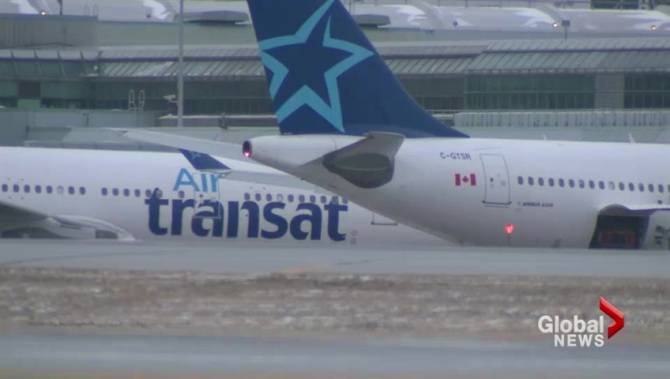Air Transat got plenty of bad publicity last summer after it kept passengers aboard two grounded aircraft for hours with little food or water and, in one case, no air conditioning.

But the airline will be able to get away with just a very mild reprimand from the Canadian Transportation Agency (CTA), according to a lawsuit filed in December by air passenger rights advocate Gabor Lukacs.
In November, the CTA ordered Air Transat to pay a $295,000 fine, which Lukacs calls a “nominal” amount for an airline. But the federal agency also said that the amount of the penalty can be reduced by any amount it will provide as compensation to passengers, in addition to covering out-of-pocket expenses.
“The CTA applied a slap-on-the-wrist fine, far below the level established in its own enforcement manual,” said Lukacs. “The CTA also inappropriately waived the entire fine. If the fines are reduced by amounts passengers receive in compensation settlements, then the fines are effectively zero and have no deterrent value.”
READ MORE: Air Transat ordered to pay expenses for passengers stuck on Ottawa tarmac for hours
Air Transat said in a statement it plans to offer each affected passenger $500 but that compensation will take into consideration anything already paid.
Lukacs is asking the Federal Court of Appeal to order the CTA to levy fines in addition to compensation offered to or won by passengers.
On July 31, two Air Transat flights – one from Rome, the other from Brussels – sat on the tarmac in Ottawa for almost five and six hours, respectively, with passengers not allowed to disembark.
One of the two aircraft ran out of fuel during the delay, then lost power, causing the air conditioning system to shut down.

Get weekly money news
During two days of hearings in August, passengers described how tensions mounted as temperatures rose, a child threw up on board one plane and ultimately a passenger on the Brussels flight called 911, attracting widespread media attention.
WATCH: A public inquiry hears from the people who were trapped on board two Air Transat flights

A number of people who were on board the planes told the hearings they would have given anything to be allowed to disembark, even if it meant additional delays or a two-hour drive back to Montreal.
Weather caused the two flights to be diverted to Ottawa, along with about 20 other planes – an incident that appeared to tax airport resources in the national capital to their limit. Fuelling teams, for instance, ran out of fuel on several occasions.
Among the planes was an Airbus 380, the largest to land that day.
The need to find a place to park that Air Emirates flight forced crews to move the two Air Transat planes to the airport taxiway, where they could be neither refuelled nor serviced. As a result, they ended up being among the last planes to be refuelled.
The airline argued it shouldn’t be held liable for what happened, blaming the airport authority and refuellers, among others, for the delays.
Transportation agency members agreed Air Transat was not solely responsible for the delays, prodding airports, refuelling companies and others involved in getting planes on and off the ground to work harder to avoid a repeat occurrence.
Despite that, the agency said the extraordinary situation didn’t relieve Air Transat from its commitment to its customers.
Air Transat’s tariff agreement with customers is too broad and gives pilots too much discretion about when to let passengers leave an airplane, despite wording that says passengers have the option of disembarking after a 90-minute delay, the report found.
Air Transat was ordered to amend the wording to require passengers to disembark after a delay of four hours, unless there are safety, security, or air traffic control issues that prevent doing so.
The airline is also being ordered to amend its rules to update passengers every 30 minutes, ensure there are working bathrooms and provide medical assistance as needed during long delays.
The passengers aboard the Brussels flight said in a Facebook post that the case shows the need for a passenger bill of rights in Canada to protect air travellers from “the implications of negligent corporate behaviour in the event of unexpected delays.”
The federal government has introduced a bill, which is stuck in the Senate, that would lay the groundwork for an air passenger bill of rights.
Air Transat has until May 24 to compensate all passengers for out-of-pocket expenses.
– With files from the Canadian Press













Comments